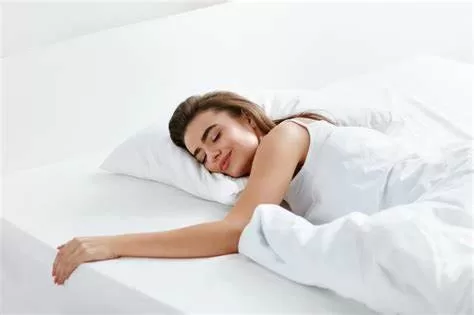
Do you have trouble sleeping at night? Are you tossing and turning for hours on end, unable to get the relaxation you need? If so, your body may be low in melatonin. Melatonin is the hormone produced in your pineal gland that is responsible for regulating your sleep-wake cycle. When melatonin levels are low, it can be difficult to fall and stay asleep. In this article, we will discuss 8 ways that you can naturally increase your melatonin levels!
1. Get more sun exposure: Sunlight is one of the best and most natural ways to increase your melatonin levels. Getting a good amount of sunlight during the day helps your body maintain a strong circadian rhythm, and a strong circadian rhythm produces more melatonin for sleep at night when it’s dark. If you have a distorted circadian rhythm due to a bad sleep cycle, your body will produce less melatonin. So try to get out in the sunshine as much as possible during the day, especially around sunrise and sunset when melatonin production is highest.
2. Take a Vitamin B6 Supplement: Vitamin B6 has been linked to a higher production of the sleep hormones serotonin and melatonin. Studies show that people who have a harder time sleeping often are deficient in this important vitamin. So make sure you’re getting enough B6 in your diet.
3. Eat Plenty of Tryptophan-Rich Foods: Ever get tired after a big turkey dinner? Foods like turkey, salmon, eggs and nuts contain tryptophan, an amino acid that helps the body produce melatonin. Try to incorporate these foods into your diet to get a natural boost melatonin.
4. Try meditation. One study found that meditating increases the natural level of melatonin in your bloodstream by as much as 22%! That’s a huge increase that if turned into a regular habit will make falling asleep faster a much easier thing.
5. Avoid Bright Lights at Night: Exposure to bright lights at night (like from your computer screen or phone) can disrupt your body’s natural production of melatonin. Try to keep the lights low at night or turn off electronic devices a few hours before bedtime.
6. Exercise Regularly: Regular exercise is a great way to increase your body’s natural production of melatonin. Try to get at least 30 minutes of physical activity a day, preferably in the morning or early afternoon when sunlight exposure is highest.
7. Reduce Stress Levels: When you’re stressed, your body goes into “fight or flight” mode, which is a natural response that prepares your body to either face a threat or to run away from it. This response causes a number of changes in your body, including the release of hormones such as adrenaline and cortisol. These hormones can interfere with the production and release of melatonin, the hormone that helps regulate your sleep-wake cycle. As a result, stress can cause your melatonin levels to drop, which can make it more difficult to fall asleep and stay asleep. Additionally, stress can also lead to other sleep disturbances, such as restless leg syndrome, sleep apnea, and nightmares, which can further disrupt your sleep and cause a decrease in melatonin levels.
8. Have a Bedtime Routine: Establishing a consistent bedtime routine will help your body recognize that it’s time for sleep, allowing melatonin levels to rise naturally at a certain time of night – your bedtime – allowing you to fall asleep much easier. You can also try taking a hot bath, reading a book, or listening to calming music before bed as part of your bedtime routine to calm yourself down. Taking a warm bath at night also increases natural melatonin because once you get out of the tub your body naturally begins to cool, and it’s this cooling of your core temperature that helps produce melatonin.
By following these 8 steps, you can naturally increase your melatonin levels and get better sleep! Try to incorporate them into your daily routine to start feeling more rested each night. Your daily habits that affect sleep are known as sleep hygiene. If you have made positive changes but haven’t seen any improvement in your sleep, you may have a sleep disorder. Call Alaska Sleep Clinic today to speak with our board-certified sleep specialists. Improve your sleep. Improve your life.

Jennifer Hardy, SleepingBetter.co
Jennifer is a stay-at-home mom with 2 kids, who is an active contributor to SleepingBetter.co. She has been researching sleep science for years and is all about creating the perfect sleep sanctuary for herself because she knows how powerful good sleep can be on your health and beauty. She loves reviewing everything from comfortable pillows to the best mattresses.
Source 1: https://lifespa.com/ayurvedic-lifestyle/circadian-rhythm/sun-exposure-melatonin/
Source 2: https://thesleepdoctor.com/sleep-aids/best-vitamins-for-sleep/
Source 3: https://www.renewyouth.com/hormones-out-of-balance-try-meditation/
Source 4: https://www.healthline.com/nutrition/tryptophan
Source 5: https://www.clinmedjournals.org/articles/ijsem/international-journal-of-sports-and-exercise-medicine-ijsem-6-161.php?jid=ijsem
Source 6: https://www.healthline.com/health-news/having-trouble-sleeping-try-a-hot-bath-before-bed#Understanding-sleep,-circadian-cycles












